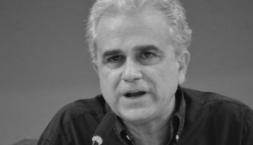Professor in Residence, Department of Architecture, GSD, Harvard University, Cambridge MA, USA
In the spring of 2018, the National Center for Smart Growth (NCSG) invited architects at the University of Maryland to engage a project called PRESTO (Prospects for Regional Sustainability Tomorrow). PRESTO is believed to be the first attempt at addressing the long-term sustainability of the DC-Baltimore region using advanced algorithmic modeling and scenario analysis techniques to examine the impacts of fuel costs, technological advancement, and government regulation. This article highlights contributions of the DC-Baltimore Futures: Designing XL to XS studio as it engaged the multi-disciplinary NCGS team on PRESTO, which is described in this article as a geodesign project. The impact of collective creativity as part of DC-Baltimore Futures studio pedagogy is discussed as one of the many ways that the PRESTO algorithms were tested. The article concludes with reflections on the role and potential of collective creativity in open source modes of geodesign and “senseable” city design.
















